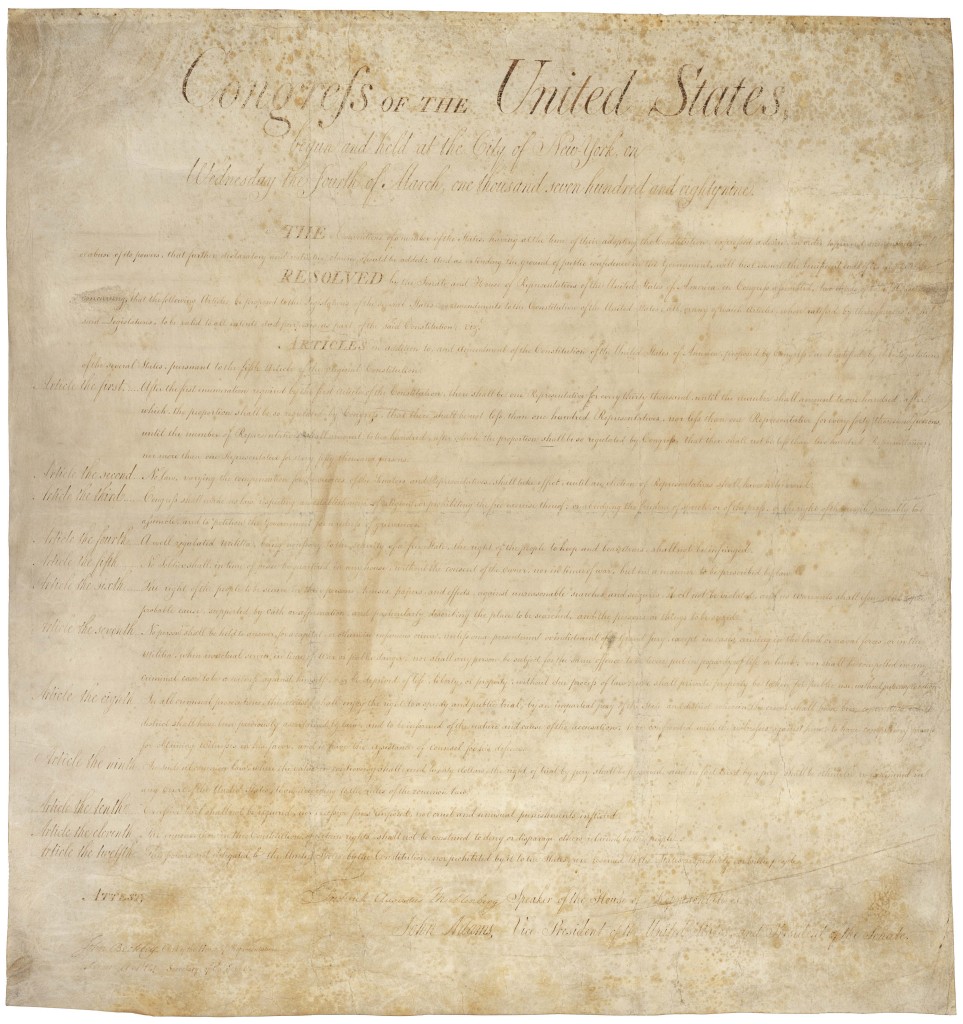 What is the Bill of Rights? Did you know that the Bill of Rights is a list of an individual’s Rights?
What is the Bill of Rights? Did you know that the Bill of Rights is a list of an individual’s Rights?
They are not group or community Rights. They are not Rights granted by our government. They are individual Rights recognized and protected by our founding fathers. They felt so strongly about these Rights that they listed them in a document. These Rights cannot be taken away. These Rights cannot be limited, modified or infringed upon. Yet they are. Why?
We have a question for our government: Do you want to change these Rights? Do you want to limit them? If so… AMEND the Constitution of the United States. That is the only way you and your corrupt cohorts can change, and/or limit our Rights as American Citizens. Now, let me remind you that our Constitution, since its inception, has only been amended 27 times.
Did you know that the President of the United States has one job? That’s right, one job. That one job is to preserve, protect and defend the Constitution of the United States. The President is part of the Executive branch; we have three branches of government: The Legislative, Judicial and Executive. It is NOT the job of the President to dictate law, no, that’s the job of the legislative branch. The Judicial branch can’t even make laws. The Judicial branch must enforce existing laws. The Executive branch ensures that the other two branches do not violate our Constitution. So why do we have a President that thinks he’s all THREE? The answer to that is rather simple. The politicians we elected to represent us allow these abuses of power to take place.
Oath of office of the President of the United States
- I do solemnly swear (or affirm) that I will faithfully execute the Office of President of the United States, and will to the best of my ability, preserve, protect and defend the Constitution of the United States.
The Bill of Rights
Amendment I
Congress shall make no law respecting an establishment of religion, or prohibiting the free exercise thereof; or abridging the freedom of speech, or of the press; or the right of the people peaceably to assemble, and to petition the Government for a redress of grievances.
Amendment II
A well regulated Militia, being necessary to the security of a free State, the right of the people to keep and bear Arms, shall not be infringed.
Amendment III
No Soldier shall, in time of peace be quartered in any house, without the consent of the Owner, nor in time of war, but in a manner to be prescribed by law.
Amendment IV
The right of the people to be secure in their persons, houses, papers, and effects, against unreasonable searches and seizures, shall not be violated, and no Warrants shall issue, but upon probable cause, supported by Oath or affirmation, and particularly describing the place to be searched, and the persons or things to be seized.
Amendment V
No person shall be held to answer for a capital, or otherwise infamous crime, unless on a presentment or indictment of a Grand Jury, except in cases arising in the land or naval forces, or in the Militia, when in actual service in time of War or public danger; nor shall any person be subject for the same offence to be twice put in jeopardy of life or limb; nor shall be compelled in any criminal case to be a witness against himself, nor be deprived of life, liberty, or property, without due process of law; nor shall private property be taken for public use, without just compensation.
Amendment VI
In all criminal prosecutions, the accused shall enjoy the right to a speedy and public trial, by an impartial jury of the State and district wherein the crime shall have been committed, which district shall have been previously ascertained by law, and to be informed of the nature and cause of the accusation; to be confronted with the witnesses against him; to have compulsory process for obtaining witnesses in his favor, and to have the Assistance of Counsel for his defence.
Amendment VII
In Suits at common law, where the value in controversy shall exceed twenty dollars, the right of trial by jury shall be preserved, and no fact tried by a jury, shall be otherwise re-examined in any Court of the United States, than according to the rules of the common law.
Amendment VIII
Excessive bail shall not be required, nor excessive fines imposed, nor cruel and unusual punishments inflicted.
Amendment IX
The enumeration in the Constitution, of certain rights, shall not be construed to deny or disparage others retained by the people.
Amendment X
The powers not delegated to the United States by the Constitution, nor prohibited by it to the States, are reserved to the States respectively, or to the people.
